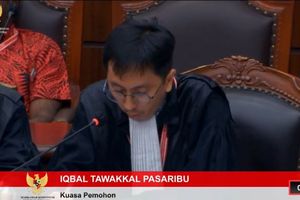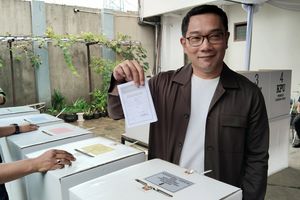A Dilematic Situation over Calls for Dismissing Sri Mulyani and Boediono
By Sara Webb and Sunanda Creagh
JAKARTA, KOMPAS.com - Indonesia’s Bank Century inquiry has little to do with banking — it is just the latest battleground in a war between reformers and traditional business elites that will decide the fate of two key pro-market allies of the president. The outcome of this particular battle is crucial for foreign investors and Indonesians alike when it comes to pushing ahead with much-needed reforms and generating a faster pace of growth in southeast Asia’s biggest economy.
If Finance Minister Sri Mulyani Indrawati and Vice President Boediono, the two technocrats in question, remain in their posts, then prospects for reform should improve, and President Susilo Bambang Yudhoyono will have more clout to tackle graft and take on the overhaul of the civil service, police and judiciary. But if either Indrawati or Boediono — or both — are forced out, Yudhoyono will have been severely weakened, reducing prospects for reform in the remainder of his five-year term.
“This is a contest between two forces — reform and anti-reform,” said Aleksius Jemadu, a political analyst at Pelita Harapan University in Jakarta. “If you look at what Sri Mulyani has done as minister of finance, many people appreciate it, but it’s a threat to others. There are people who will be put at risk because of her policies, for instance her tax policies. Some people feel threatened by her policies, so are trying to get rid of her through this scandal.”
Indonesia has been a star performer among emerging markets in the past year, due to strong fundamentals, a thriving domestic consumer market, but also crucially because of hopes Yudhoyono would press ahead with reforms to unlock even faster growth.
Many analysts say an upgrade of Indonesia’s sovereign debt to investment grade is within reach in a couple of years. It has been widely tipped as the country most likely to join the “BRICs” — Brazil, Russia, India and China — in the select group of essential emerging markets investors cannot afford to ignore.
Prolonged conflict over reform could put that at risk. “In the longer term this would clearly impact people’s appetite for Indonesia,” said James Bryson, a Jakarta-based investment advisor at fund manager HB Capital.
“If that rumbles on it makes it less likely that the ratings agencies upgrade Indonesia’s sovereign rating. If progress in these areas and cleaning up the institutions isn’t made, then Moody’s, S&P will be slower to upgrade any ratings.”
Powerful enemies
As finance minister, Indrawati has cleaned up Indonesia’s notoriously corrupt tax and customs departments in an effort to increase state revenues from tax and duties and reduce the country’s reliance on bond issues to fund the budget deficit. To get an idea of the scale of tax evasion in Indonesia, last month, the tax department produced a list of the 100 worst tax dodgers which it said owed a total of $1.9 billion in taxes in 2009, equivalent to one-tenth of the amount that Indonesia plans to raise in the bond markets this year.























